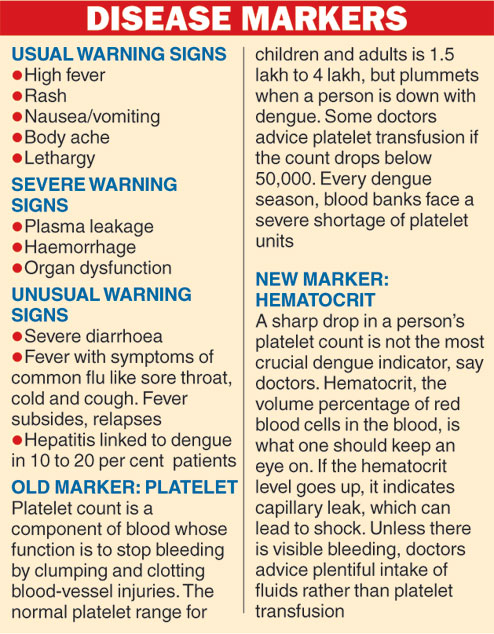
Guwahati, Aug. 17: Altogether 66 new cases of dengue were detected in Kamrup (metro) today, taking the number of people affected by the disease to 378 in the district and 458 in the state.
Kamrup (metro) has been the worst hit with the disease claiming the life of a woman. Health workers in the district are making door-to-door visits in affected areas to ascertain whether anyone is down with high fever and dengue-like symptoms. They are also educating the public on how to reduce or eliminate the vector that helps the spread of the dengue virus - the A. Aegypti mosquito. #
"Although more people are testing positive to dengue, most of the cases are from Kamrup (metro). No deaths related to the disease have been reported today. Fogging activities and sensitisation programmes in affected areas are being conducted to control the spread of the disease," said R. Bhuyan, director of the state health services.
"Dengue cases have mostly been reported from Amerigog, on the outskirts of the city, Kahilipara, Lal Ganesh, Odalbakra and 9 Mile. Sporadic cases have also been reported from different localities in the district. Apart from intensifying fogging activities to kill mosquitoes in these areas, our health workers are also visiting the homes in these areas to find out if anyone is suffering from high fever. People often tend to ignore high fever as common cold and do not consult doctors on time. As such, the disease progresses, causing complications. Our health workers will collect blood samples of anyone with dengue-like symptoms and send them for confirmatory tests," said G. Saikia, joint director of Kamrup (metro) district health services.
Altogether 56 dengue cases have been reported from Amerigog, 34 from Kahilipara, 31 from Lal Ganesh, 11 from Odalbakra and 13 from 9 Mile.
"Medicated mosquito nets are also being distributed among the public. We are also conducting awareness campaigns in schools. More attention is being paid on reducing the very source that helps the A. Aegypti mosquito to breed. It breeds in clean stagnant water and so people should change the water of their air coolers and avoid storing clean water without covers. This particular mosquito can even breed in water that may collect on the top of leaves," Saikia said.











